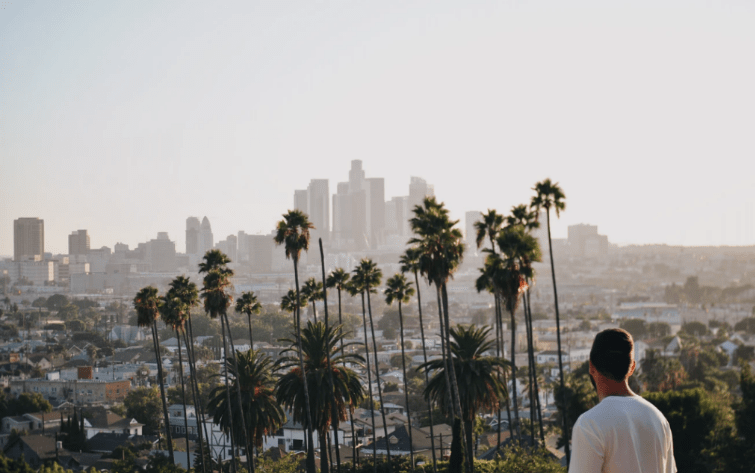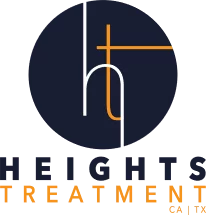Table of Contents
If you live in Los Angeles and wonder why things aren’t quite what they used to be, you may find it interesting to take a closer look at the negative impact of drugs in Los Angeles. It may not always be visible, but the problem is widespread and growing.
In this article, we’re taking a closer look at the impact of drugs in Los Angeles.
Drugs in Los Angeles
LA’s drug history starts early, with the prohibition of opiates and cocaine in 1914 and a rise in crime as patients addicted to previously legal substances found themselves going through illegal channels to get their fix. Since then, the county has been fighting a war on drugs and their impact on the community.
Here are the negative impacts of drugs in Los Angeles.
Drugs, Crime, and Militarization
When crack cocaine became a recognized problem in black communities throughout Los Angeles, the response was to crank up the militarization of local police and focus on the problem.
The result was a 100:1 ratio of crack cocaine to powdered cocaine court cases and a disproportionate amount of African American men in prison. Within black communities, the reactions were split.
Many supported drastic measures against drug use and encouraged the militarization of local police as a necessary means to a safer neighborhood. Many others perceived it as a farce meant to oppress men of color, send the country’s black youth to prison instead of school, and sow the racial divide.
It’s an incredibly controversial topic – and the effects of the crackdown on crack are visible today. Mass incarceration is a common issue in America, and the war on drugs – especially marijuana and crack cocaine, the drugs of choice in black neighborhoods – is at the forefront.
Whether this is an impact caused by drugs, racism, a lack of foresight, or a combination of all three is up to debate – but there’s no denying that a large part in all this is LA’s role in the 80s as the crack cocaine capital of the world.
The 1980s war on drugs has left LA scarred – but beyond that, drugs continue to be a problem for this great county. The link between crime, poverty, and drug use is undeniable, and many neighborhoods are troubled by a cycle of violence.
Addiction and the Law
A relatively recent addition to the law in Los Angeles is Proposition 47. This law changes certain felonies into misdemeanors, thus reducing LA’s growing and problematic prison population. The problem is that while this reduces the criminalization of drug users, it also leads to a problem in that it doesn’t introduce an incentive to seek treatment, nor does it make it mandatory for those caught with drug charges to seek treatment for their addiction.
This ultimately leads to a problem where repeat offenders are becoming common. Of course, this isn’t to say it’s a bad change in the law. After all, through Proposition 47, many people who otherwise would be languishing in jail for a minor crime now get the chance to get their life together, clean their records, and find a decent job without a former felony charge and conviction hanging over their heads.
But beyond these positive effects, the fact is that the legal and political situation in LA is vastly lacking when it comes to constructively tackling the issue of addiction. Proposition 47, aside entirely, there are shortcomings in the law regarding drug treatment.
Availability isn’t even the issue – the issue is the incentive to seek treatment. Among criminal offenders whose root cause was drug use, spending time in jail was preferable to a stint in rehab.
It’s Up to the Community
There is no quick fix, and politics only get people so far. Proposition 47 is an example of what a double-edged sword looks like, and it helps give perspective to the fact that when the law reaches in to make a change, pros and cons are looming on the horizon.
Ultimately, all change will come from the people – the families and communities that make up the city of Los Angeles. LA is a problematic place, as with any great city. It’s messy and violent. But it’s still home to millions of Americans who work hard to support themselves and their families and make it daily. Crime is never the product of a community that wants to be violent but a byproduct of its struggles – the importance of working together in communities and schools to eliminate violence as an option is paramount to progress.
Drugs have been destroying families in LA for decades, and treatment is hard to find and adjust to. Many don’t seek treatment not because it’s too expensive but because of the stigma attached to rehab and seeking help. Others can’t afford to take the time from their lives to get help.
Remedying these two factors – the expense and the stigma – is critical. Making it easier and more acceptable to seek help will help become an option for everybody.
Outside of treatment, the biggest support anyone struggling with addiction can find is within the community and family. Too often, people disparage each other for drug use rather than trying to help one another. Instead of putting community members down for their drug use, it’s important to help lift each other up.
Politics can help, but it’s often ineffectual – and societal changes take generations to come into effect. The only real change is here and now, achieved when a few people take action to improve their neighborhood against all the odds.
Sources:
- Duara N. Carrots but no stick: Participation in California drug courts has plummeted. CalMatters. http://calmatters.org/justice/2022/07/california-drug-courts-prop-47/. Published July 5, 2022. Accessed October 13, 2022.
The Heights Treatment Editorial Guidelines
There is a vast amount of misinformation online especially as it relates to health & wellness. We have made it our mission at The Heights Treatment to provide accurate, medically sound content that has been medically reviewed by a doctorate level clinician so that you can trust the information contained within our website.





